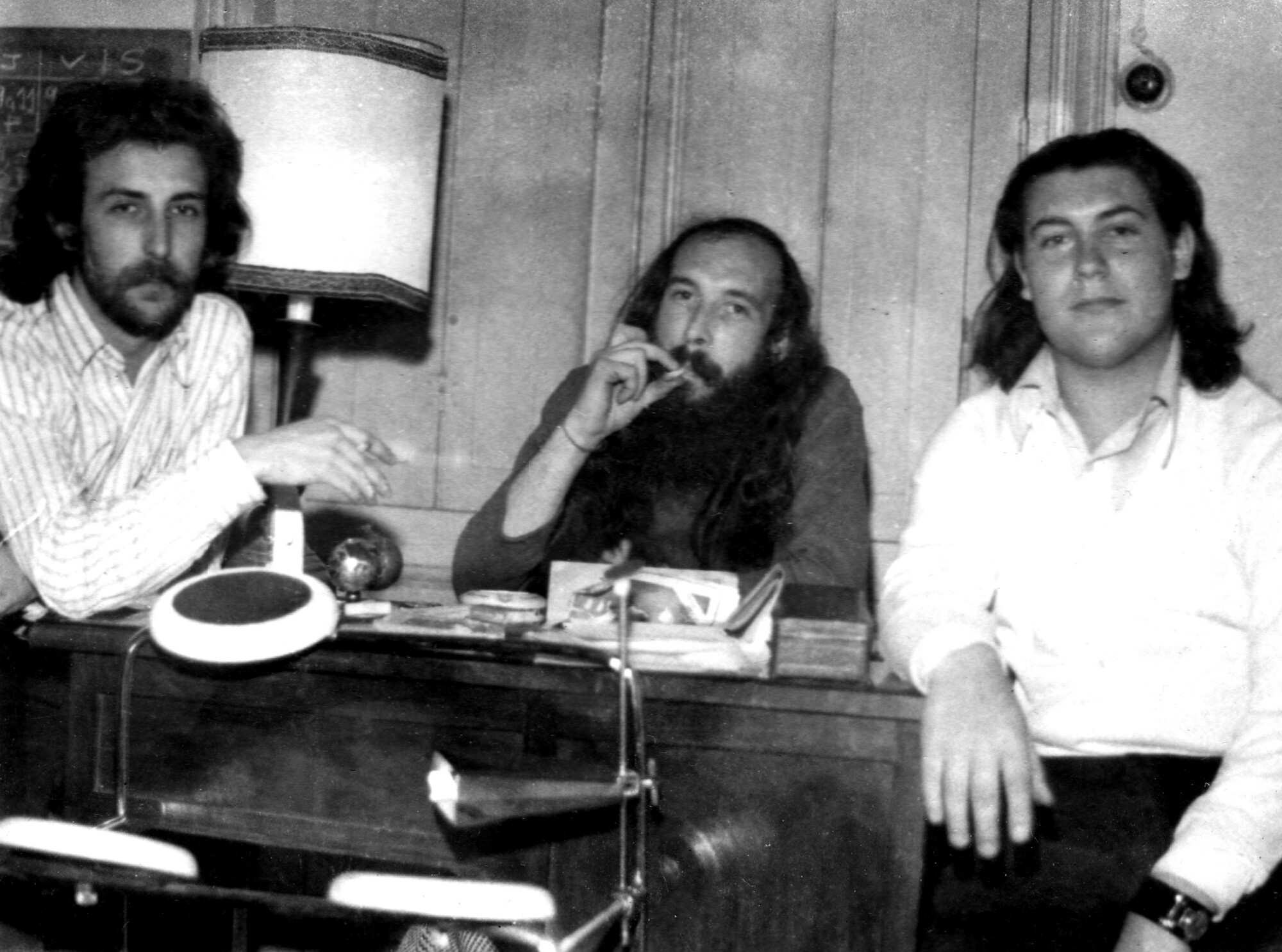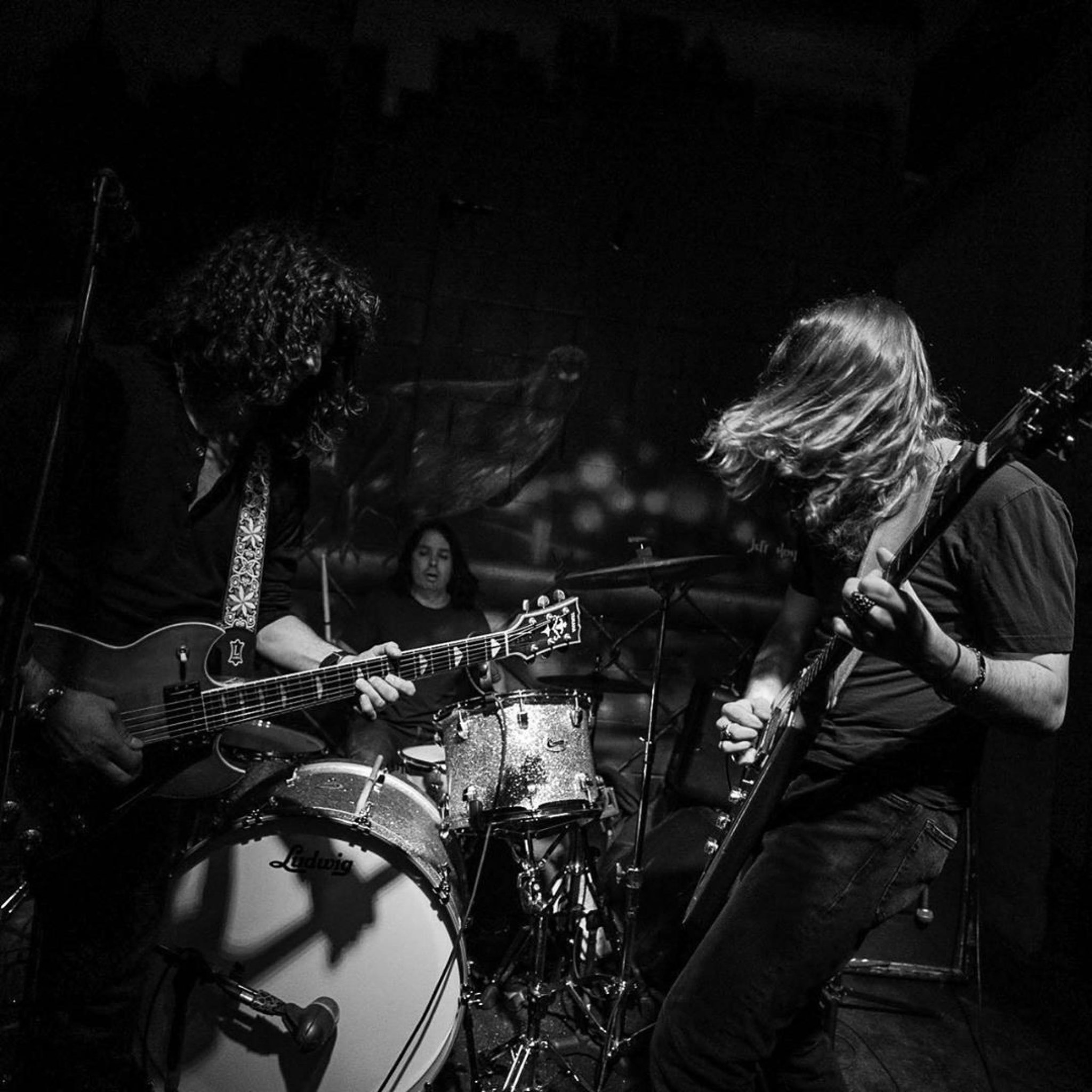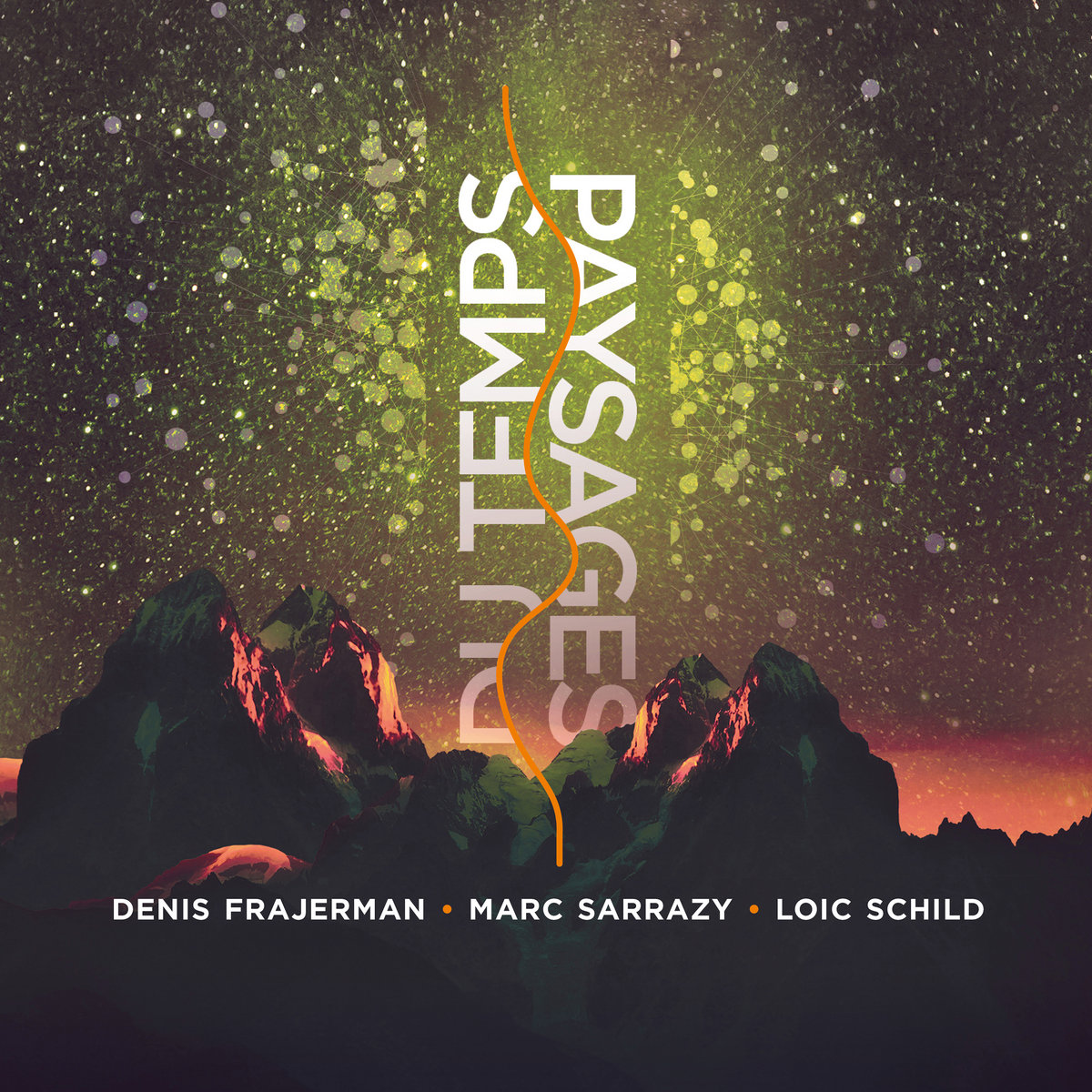Opus Alfa | Días De Blues | Jorge Flaco Barral | Daniel Bertolone | Interview
The legendary Montevideo, Uruguay based Días De Blues was a power trio playing acid blues. The trio was originally formed from the ashes of Opus Alfa in 1972 by Jorge Flaco Barral on bass, Daniel Bertolone on guitar, and Jorge Graf on drums.
The band sadly disbanded in 1973 due to the deterioration of the political situation in Uruguay. Jorge Flaco Barral and Daniel Bertolone were an important part of the counterculture that began at the end of the 60s and continued to play until this day with a variety of projects.

“We wanted to experiment”
It’s really fantastic to have you. How are you doing these days?
Flaco Barral: Hello Klemen, thank you very much for contacting me to conduct this interview. Really a pleasure. Luckily, I’m very well, knock on wood.
Daniel Bertolone: Oh, thank you for having me here, I’m fine, doing all right here in Sydney, Australia.
I see that you are very busy, still very active as a musician. What are some of the latest projects you were working on?
Flaco Barral: There have been a few projects, although the pandemic has caused a hiatus. In 2016 I released my solo album ‘UyyyUyuy!!,’ then the 18th album by Raga & Blues titled, ‘En un lugar en Primavera’ and the 22nd book and album “100 Años en la carretera (Homenaje a Kerouac),” a small tribute to 100 years of the birth of Jack Kerouac edited by “Allanamiento de Mirada” and some interventions on albums by other groups.
Daniel Bertolone: Well, I was involved in several home studio projects. I’m recording a very iconic tune named ‘Room 335’ by Larry Carlton, with a friend who lives in Sweden and he has to put a melody and a solo on it. I’m also preparing a rhythm track for the song ‘Within You Without You,’ which we will record with Flaco Barral playing the Chaturangui on it. The song was composed by George Harrison for the famous The Beatles album ‘Sgt. Pepper’s Lonely Hearts Club Band,’ and it opens the side B of the album.
What was it like growing up in Montevideo?
Flaco Barral: Personally I can’t complain, I had a very pleasant childhood, in a very creative environment and with a father who filled us with music, painting, et cetera even though he was not a musician.
Daniel Bertolone: Oh, it was really good for me. We are talking of Montevideo from the 60s and all young people were into music and The Beatles were a real sensation in Uruguay.
Was there a certain moment in your life when you knew that you wanted to become a musician?
Flaco Barral: Yes, of course yes, when I was 6 or 7 years old I asked my parents to buy me an accordion, aha, but they told me that first I had to study. Once I finished high school, my father helped me to buy my first guitar, I didn’t want an accordion anymore.
Daniel Bertolone: Oh yes, there certainly was. I was 12 years old when I met Daniel Crapuccet, a drummer with whom we started a band when we were in secondary school first year; I knew that was what I wanted to do for the rest of my life.
How did you first hear those early rock’ n’ roll songs?
Flaco Barral: I heard rock ‘n’ roll songs thanks to my father who had bought a shortwave radio and on the roof of my house (house, not apartment) he had put strands of cables so that they would act as an antenna and we could listen to the stations from the US and Europe. Of course I was petrified when listening to those songs! And I couldn’t wait to have a guitar, haha.
Daniel Bertolone: Well, when I was a kid, about 4 or 5 years old, I use to watch my youngest aunt who a great skater and dancer, a great athlete, and I remember two tunes she use to dance to: ‘Let’s Jump the Broomstick’ by Brenda Lee and also ‘Rock Around the Clock’ by Bill Haley & His Comets; those two tunes stayed in my mind forever.
What was the local scene like back then in the mid-70s? Did you have a lot of Beat bands?
Flaco Barral: Well, I’m a little older than 70, I started in 1963 or so. Yes, I had several groups, although the most important before the 70s was Los Crabs, with them we went to Buenos Aires, Argentina to do a test at the Emi Odeón, but it didn’t work out. I decided to stay in Buenos Aires. In the 70s, they were no longer beat bands, but rather progressive rock and blues bands.
Daniel Bertolone: I don’t know about the mid 70’s cause I left Uruguay to come to Australia in 1973; however, we were listening to things like Jeff Beck, John Mayall & the Bluesbreakers, Cream, and the greatest rock guitarist ever, Jimi Hendrix, in the mid to late 60’s.
“Uruguay was one of the first South American countries to be up to date with the British and American music scenes”
Was it difficult to get blues and rock records?
Flaco Barral: It wasn’t easy, although there was always a friend who brought records from the US or England. Very important were the children of the Mormons, who were passionate about rock and sent records and lent them to us.
Daniel Bertolone: At first yes, but then when the record companies found out that there was an audience for that type of music they started to bring that kind of music to Uruguay. The funny thing is that I think Uruguay was one of the first South American countries to be up to date with the British and American music scenes.
Were you in any bands before forming Opus Alfa?
Flaco Barral: Yes, in several. Les Battants, The Walkers and Los Crabs from Montevideo. I also played in a trio and played songs like ‘Viet Rock’ by Megan Terry, ‘La historia de la guita,’ a song on an album by new artists called ‘La Catedral del Ritmo’ and the composition of a couple of songs for the album for children ‘Si te gusta te lo canto’ in Buenos Aires.
Daniel Bertolone: Yes, by the time we formed Opus Alfa, I had already played bass in five bands, including working as a professional bass player at 15 in Orfeo Negro, one of the most succesfull night clubs in Uruguay of the mid 60’s.
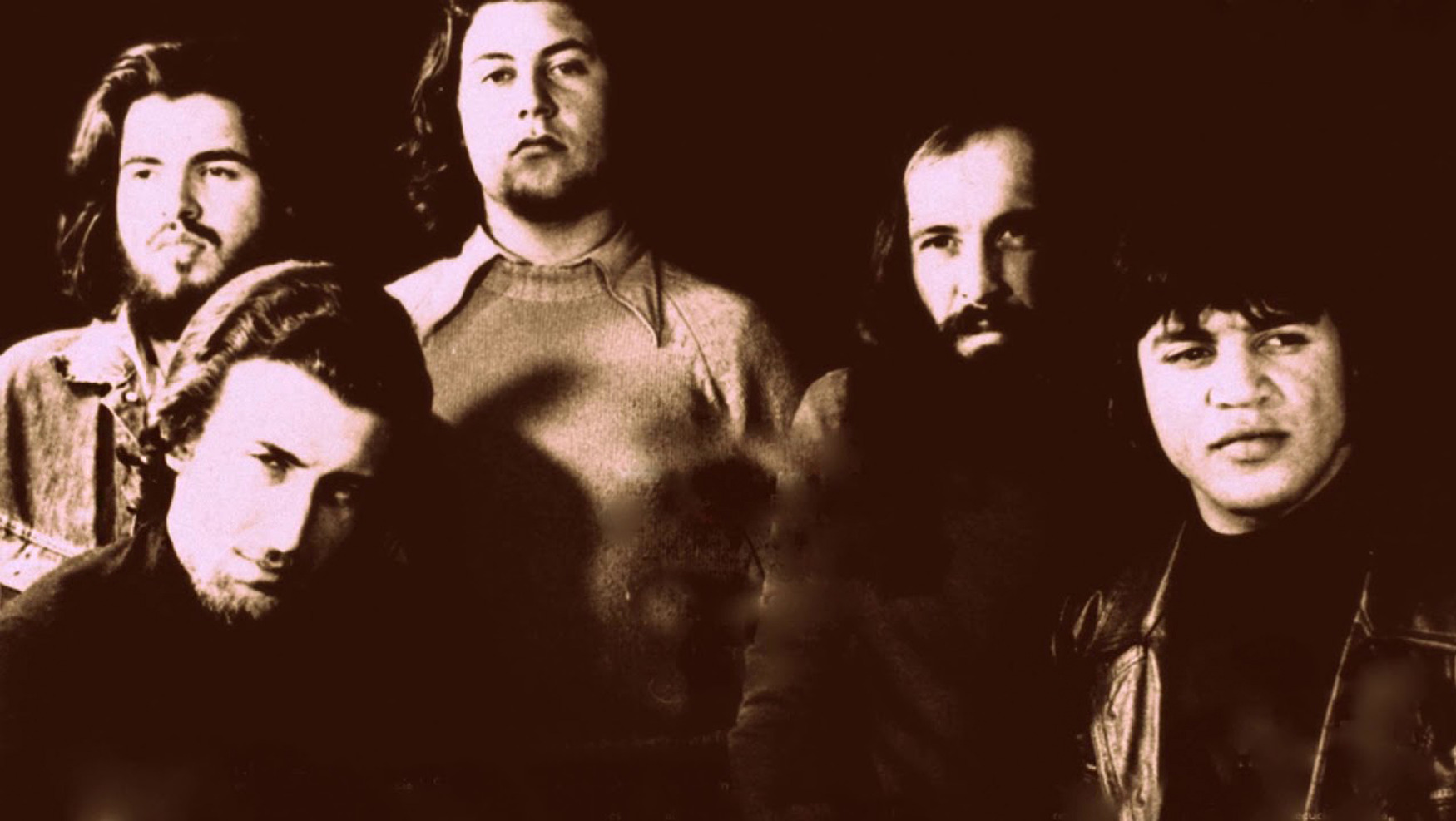
What led to the formation of Opus Alfa?
Flaco Barral: Opus Alfa already existed when I returned from Buenos Aires to Montevideo. What changed in the group was that they did covers and when they asked me to play bass, my condition was that they make their own songs. This was accepted and a new chapter began for the band.
Daniel Bertolone: As I said before, I started a band with a drummer named Daniel Crapuccet. He passed away, and at first we were playing The Beatles and The Rolling Stones tunes, but then I had the fortune of running across ‘Axis: Bold as Love’ by Jimi Hendrix Experience, and it blew me away, so I started to learn those tunes and that style of blues psych rock guitar playing, and Daniel also loved that music, so we eventually came to form the first Opus Alfa with Daniel Crapuccet on drums and Jose Luis on bass; that was the first Opus Alfa lineup.

What can you tell us about the De la Planta label and how did you get signed up?
Flaco Barral: De la Planta was a very important label, because it brought together the most progressive aspects of the Uruguayan environment. Furthermore, one of the partners was a sound engineer at the ION studios in Bueno Aires, so the groups on his label recorded there, with higher quality, although at that time the studio only had option for 4-track recording. We signed with them because the Sondor label was not encouraged by Opus Alfa. So we contacted De La Planta and they signed us.
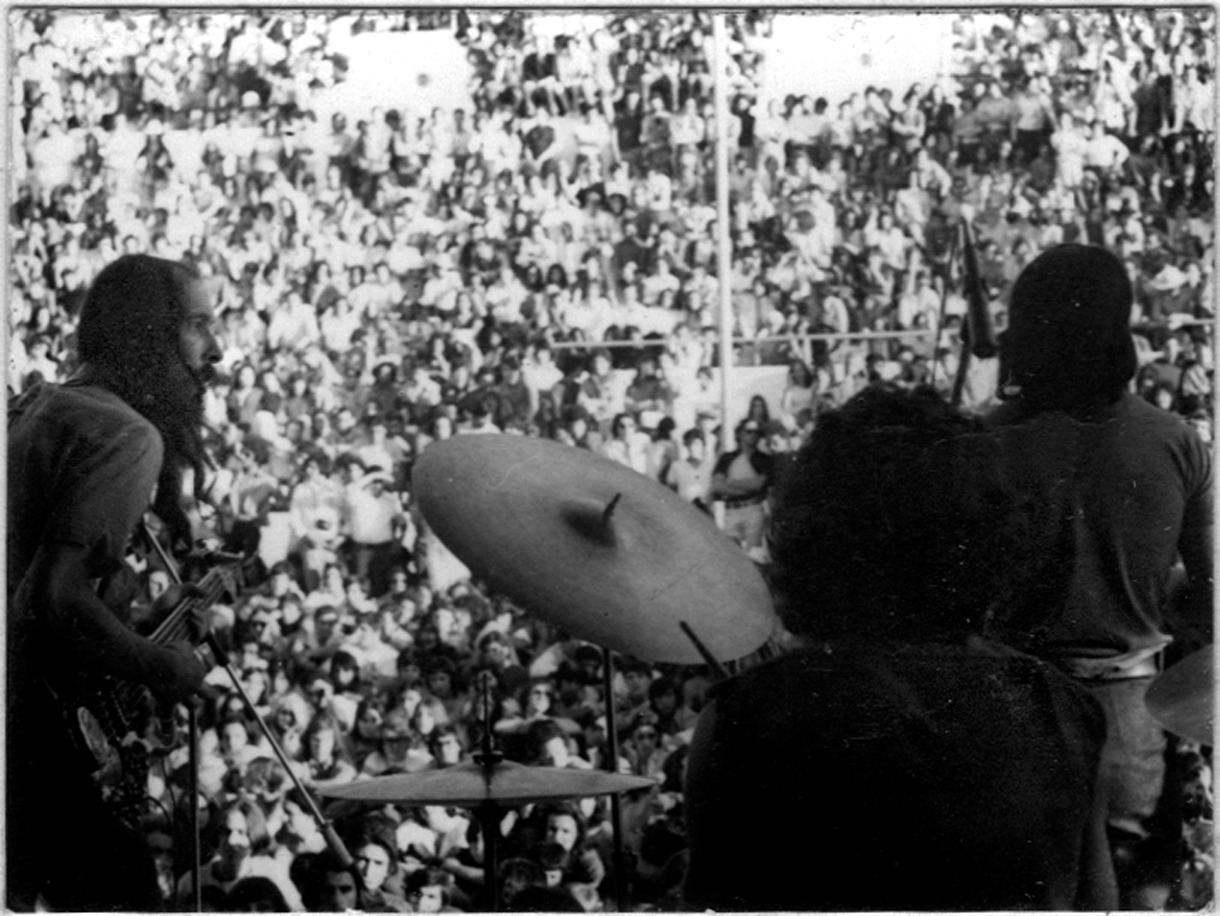
Daniel Bertolone: Ok, this is going to be a bit longer reply; De La Planta label was run by Koyo Abuchlja, who was the rhythm guitarist with a very famous uruguayan band called Los Delfines. Unlike the other Uruguayan labels, De La Planta label were recorded in Argentina in ION studios, which was far superior to any of the studios in Uruguay, and also had one of the greatest sound engineers to come out of Uruguay to do the recordings. I’m talking about the great Carlos Piriz; so that was their catch. They offered you that and even paid for the return tickets to and from Buenos Aires. The only thing is that Carlos Piriz could have the studio during the weekend, so albums had to be recorded between Saturday and Sunday. We accepted the offer because he had a great studio and was a great sound engineer. We were pretty tight as a band to do the album in two days.
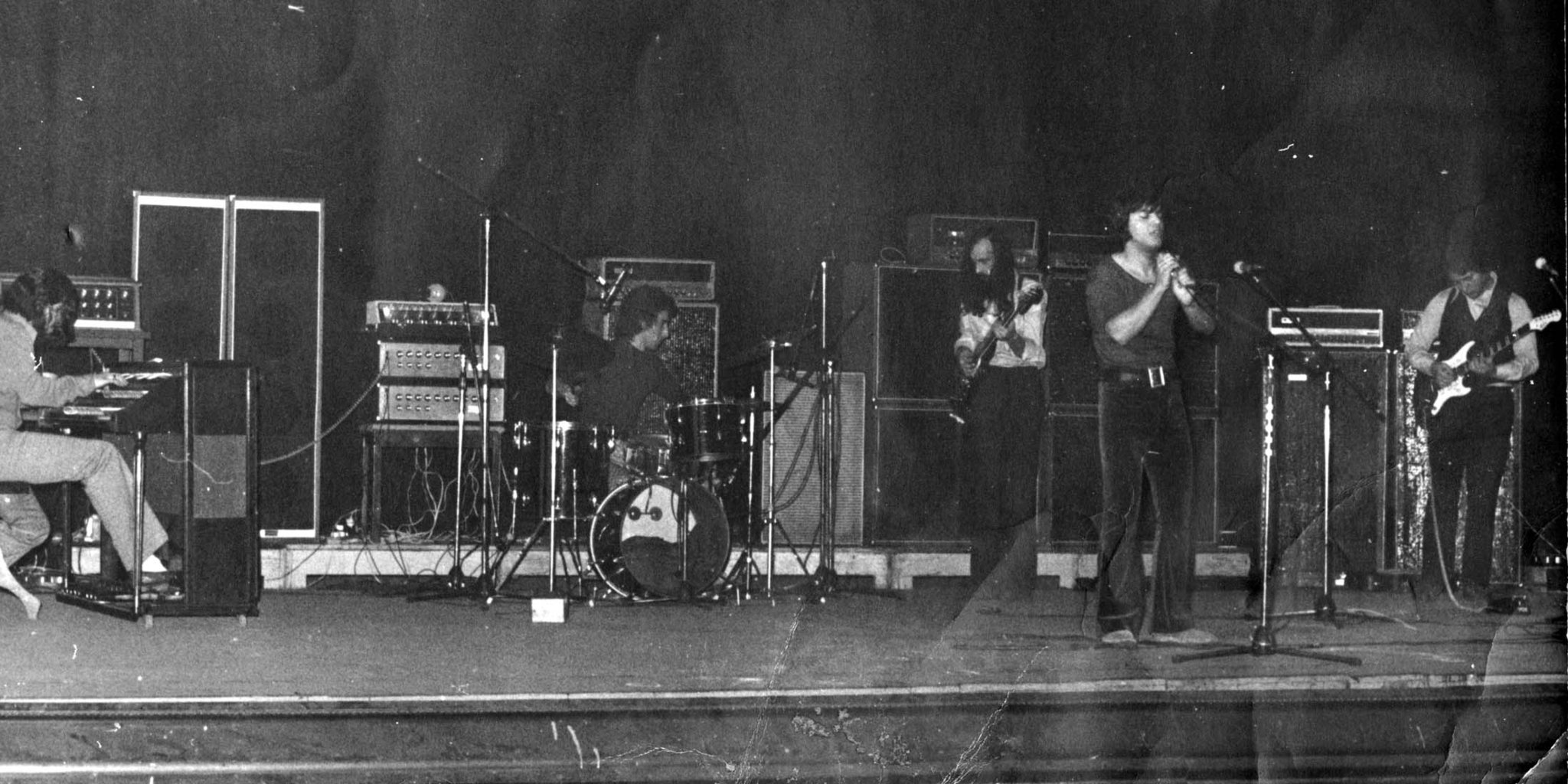
Did you play a lot of shows before releasing your Opus Alfe debut album?
Flaco Barral: They were already playing a lot. When I joined them, we had to do a new repertoire and that took time, but we had the opportunity to play a few times before recording, which was important to test the songs live.
Daniel Bertolone: Oh yes, we have been playing for nearly two years with the first formation with Daniel Crapuccet on drums and Jose Luis on bass. We were playing a lot of Joe Cocker, Keef Hartley, Jimi Hendrix, Jeff Beck, and other material, and then Jose Luis left for the USA and Daniel wanted to form his own band. So we brought Jorge Flaco Barral and Jorge Graf to replace Daniel and Jose Luis, but Flaco Barral would join only on condition that we started to play original material and sang in Spanish. So we said yes because we wanted him to join the band, hehe.

What did the repertoire consist of?
Flaco Barral: We didn’t really set any limits, we wanted to experiment, so there were songs with hints of tango (we called them “tangueses”), baroque (I was “possessed” by Wanda Landowska and her harpsichord, we called them “barroqueses”), blues, hard rock, et cetera. A true experience with a lot of risk…
I’m curious what kind of gear you have in the band?
Flaco Barral: We weren’t wealthy young people, so the gear was very normal. I had an Argentine-made Dimi bass, the band had bought it from Roberto Carlos’s bassist at the end of his tour of South America and the last country they played was Uruguay. With the bass he also used a wah wah pedal. On the acoustic songs he used an Ariana brand acoustic guitar from 1963 and a double 4-string mandola and a single one purchased in Buenos Aires in a store selling antiques and second-hand furniture.
Daniel Bertolone: We didn’t have much gear of our own. I had my Hofner Galaxy, which was a kind of luxurious guitar in Uruguay, but I didn’t have an amp. Then Polo, the keyboard player, had a Magnavox organ which was quite good. Then Daniel had a made up drum set, which sounded quite good because he had a Ludwig snare. Jose Luis had the first Fender Jazz Bass seen in Uruguay! He brought it from the USA. We used to rent the amps for guitar and bass and a PA if there wasn’t one available in the place we were going to play…and that was all we had, which, mind you, was quite impressive for the Uruguay of the mid 60’s.
What’s the story behind your Opus Alfa debut album? Where did you record it? What kind of equipment did you use and who was the producer? How many hours did you spend in the studio?
Flaco Barral: The album was recorded at the ION studios in Buenos Aires with engineer Carlos Piriz, who in turn was a partner of the De La Planta label. The recording conditions were to record on a weekend, that is, Saturday and Sunday and that’s how it was done, since we only had a couple of days in a hotel and return tickets. The tape recorder was a Scully 280 4-track and the microphone was what was available at that time in the studios, Neumann, Telefunken, et cetera.
Daniel Bertolone: I can’t give you exact data about this question. In general and using approximate calculations let me tell you… the story begins with accepting the De La Planta label offer. Then we were given the return tickets to and from Buenos Aires to go over there and record the album at ION studios of Argentina with sound engineer Carlos Piriz. De la Planta label was the producer of the album. They didn’t pay us money to sign the contract. They gave us the return tickets and sound engineer at the ION studios. It was top class for the times. Now as I said before, we did the whole album in one weekend because the return tickets had to be used by the following Monday. That is how I remember the recording session, but I could be forgetting something or even missing something.
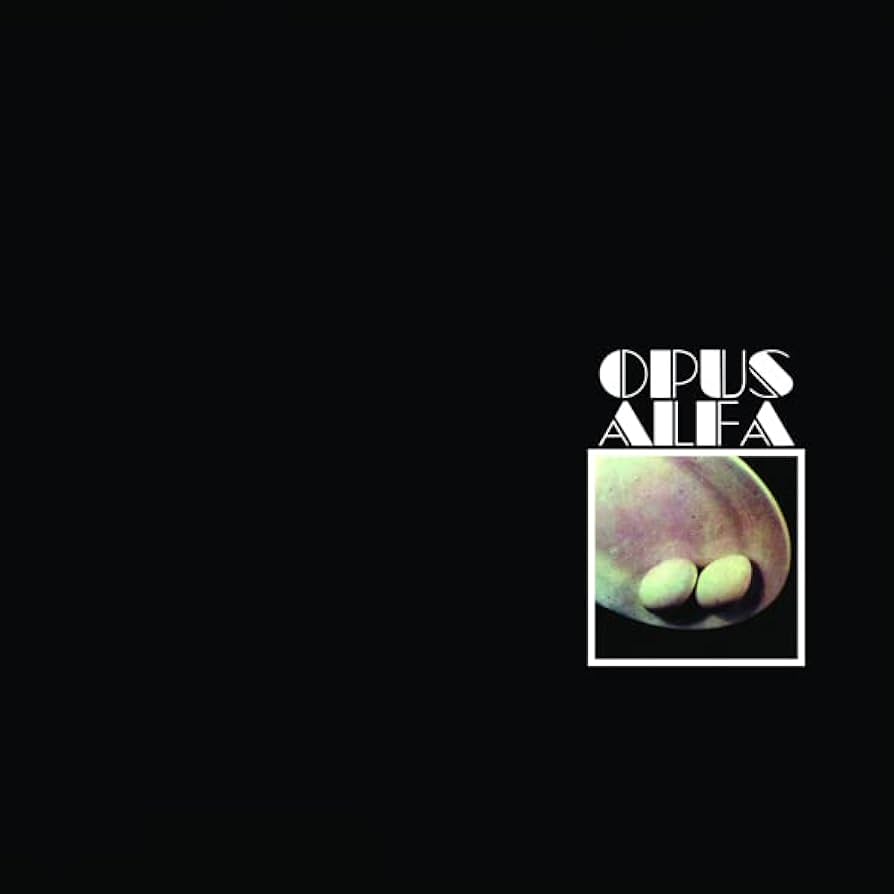
Were you inspired by psychoactive substances like LSD at the time of writing the album?
Flaco Barral: No, I started smoking marijuana some time after the album was recorded and I never used LSD, I think I was high enough to not need that drug, haha.
Daniel Bertolone: I can only answer for myself. I wasn’t under the effects of any drugs during the writing, recording rehearsals of that album; maybe some alcohol occasionally.
Tell us how did the band stop and how that ended in forming Días De Blues?
Flaco Barral: I think that the experience was gradually coming to an end and we were letting it die, there were other interests from several of the members. At that time there were a couple or three places where they would jam once the show was over. Normally there I would see myself with Daniel Bertolone and Jorge Graf and we would play some blues and it really sounded great as a trio. The real driving force behind the trio was Graf, who insisted until we got together and formed Días de Blues.
Daniel Bertolone: Well, somehow the album was one the main objectives of the band, and I believe that Polo, the keyboard player), and Jesus Figueroa (the singer) were already thinking about other projects, not necessarily musical. The band was good and played most of the venues in Uruguay, from dances, to night clubs, to theatres, but there was also a determining factor in doing the change. The only guys who were thinking 100 per cent music were Jorge Graf, Jorge Flaco Barral and I. Now Jorge Graf was an admirer of Cream’s drummer Ginger Baker and he WANTED to play in a TRIO situation rather than a 5 piece band. Why? Because in that way he had a lot more room to show his drumming a la Baker which he had been doing for years. In fact he had a trio way before Días De Blues, and he always liked that idea, so it was almost a natural transition. Imagine, the keyboard player was about to quit, and so the singer, and we already had a few jams with Barral and Graf and we and the other guys in the band realized that we had something really special going on as a trio, so it was almost the natural thing to do and everybody knew that, so it happened.
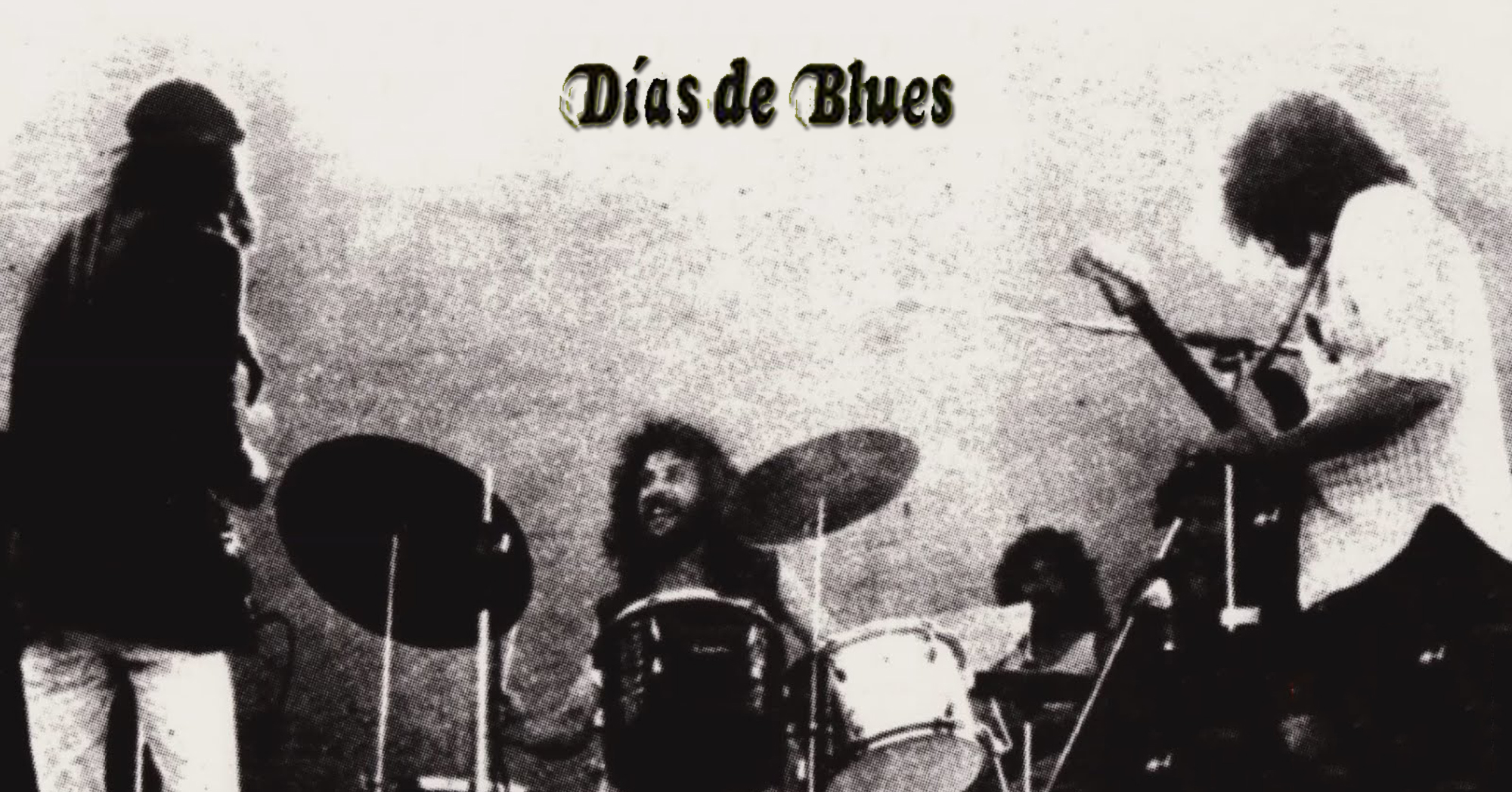
Would you say the album had some political connotations at the time?
Flaco Barral: I think you are referring to the Opus Alfa album. Well, I would say that the connotations were more human than political. Ours was not about left or right, but about the problems that human beings may have and at times, reflecting the reality of the city, which ours was Montevideo.
Daniel Bertolone: It did have political connotations, but indirectly. We were about playing the music right, and being genuine. We cared about the political situation in Uruguay and in the world because it affected us, but we weren’t playing to address political issues, we were playing for the fun and the connection with the public and making people feel good. We made a bit of money for Uruguay of that time, but not much either, it was mainly the music and the people.

“It was like entering a state of trance you know”
How do you remember recording the Días De Blues album?
Flaco Barral: The technical conditions were exactly the same, it had been only a year since recording the previous one with Opus Alfa and the recording days, also, only two days. The difference was that being a trio, there was more musical “freedom” and I could say more understanding of what we wanted to achieve.
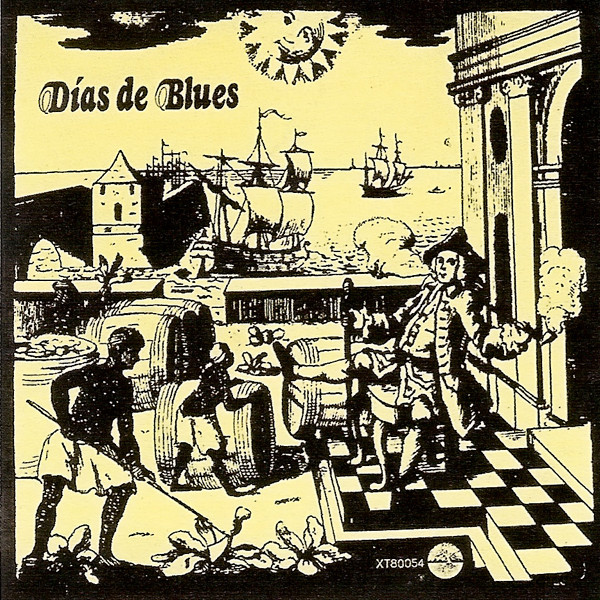
Daniel Bertolone: The logistics were pretty much the same as with Opus Alfa. We had the return tickets, the same studio and the same sound engineer, but the music and the playing was very different. With Días De Blues the emphasis was in the playing and in the communication we use to achieve with the other guys. It was like entering a state of trance you know, we were in a different dimension, very powerful, and as far as I’m concerned maybe had some wine haha, not drugs.
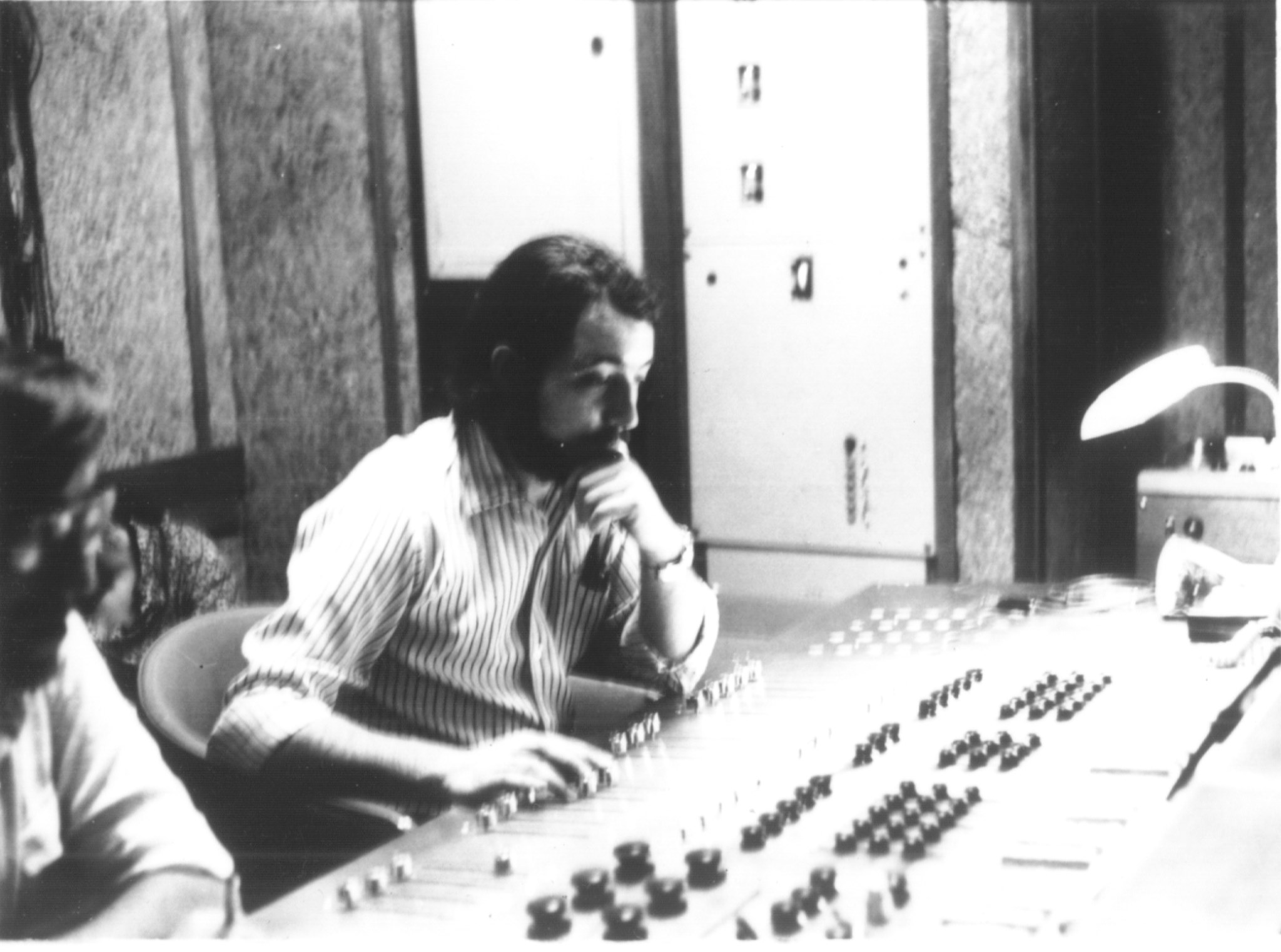
Did you do a lot of gigs?
Flaco Barral: Yes, many and with great public attendance, both in Montevideo and in the interior of the country. We were also invited to the B. A. Rocken Buenos Aires festival and with very good acceptance and criticism from the press.
Daniel Bertolone: Yes, we did all the venues of Montevideo and we also played some gigs in the countryside and to our surprise, we were very successful in what you could describe as folklore territory, in other words, we were accepted in different musical genres audiences.

You also did a lot of collaboration – Jesús Figueroa, Azahar, Azabache, tell us about those collaborations.
Flaco Barral: With María de Fátima I didn’t do anything. With Jesús Figueroa I did, since at that time he belonged to a production company called Yes, along with Esteban Leivas and Hamblet Faux, both journalists, and myself in the musical section. On his album ‘Jesús con todos’ I was not only a musician on some songs, I was also the producer of the album. With Jorge Galemirele I recorded the title track of the album ‘Perfume’ in my studio, but that was years later, in 2002 in Madrid. On it I played electric guitars and bouzouki. Another person I collaborated with was Leo Antunez on his album ‘Un Tal Leo Antunez’ where I composed all the music and there I played electric guitar, acoustic guitar and bowed bass.
Daniel Bertolone: Yes they were all good, but let me clarify that I didn’t do any with Maria de Fatima. I did a collaboration with his former boyfriend, Hugo Fattoruso, on my last album recently released in Uruguay ‘Viaje Imaginario’ by +Daniel Bertolone y Expreso Groove.
Looking back, what was the highlight of your time in the band? Which songs are you most proud of? Where and when was your most memorable gig?
Flaco Barral: The climax is when I decided that I wanted to come live in Europe, because I didn’t see a future as a musician in Uruguay. The country only had three million inhabitants, the political situation was quite unbearable and I only wanted to make a living from music, not have a parallel job and in the end music ended up being a kind of hobby.
It is very difficult to say which songs I am proud of, there are many and I would almost say all of them, haha When you have accepted that they enter into an album that will be recorded for posterity, you are sure that it fulfills your aspirations. There may be songs with which you feel more or less identified, but perhaps there will be some that at the time did not reach you as much and later you say, “Wow!” There are several in those first years. There were some performances, the B. A. Rock with Opus Alfa and Días de Blues. The first presentation with Días de Blues at the Solis theater in Montevideo in which we were the opening act for Lito Nebia y Huinca, later the first solo at the Nuevo Stella theater and one that I have a great memory, is the farewell at the Novelty theater that they gave me my colleagues Jorge Graf and Daniel Bertolone before leaving for Spain.
Daniel Bertolone: One of the most memorable highlights would be the B. A. Rock festival, in which we did a memorable performance. Some of my favourite songs with Opus Alfa are: ‘Blues de mi ciudad,’ ‘Ilusion,’ ‘Casa de Huespedes,’ ‘Cancion para Kenny y los ninios,’ ‘Destino de mis pasos,’ in which I sing and play bass. With Dias de Blues ‘Amasijando los Blues,’ ‘Dame tu sonrisa loco’ (I play harmonica in this one), ‘Estan desubicados,’ ‘No podran conmigo,’ ‘Vuela,’ ‘Toda tu vida’. The most memorable gig for me is still our first gig as guest of Litto Nebia with his band at the Solis Theatre.
Is there any unreleased material by Días De Blues or Opus Alfa?
Flaco Barral: Not that I know of.
Daniel Bertolone: I know there are home made recordings of Días De Blues playing live. I don’t know about Opus Alfa.

Thank you for taking your time. Last word is yours.
Flaco Barral: Well Klemen, it has been a pleasure to answer this questionnaire and take a tour of the past between the 60s/70s. Just to tell you that the publishing house Allanamiento de Mirada is writing a book-disc about the story of my life that I will present both in Madrid and Montevideo between the months of October and November, I will keep you informed. Big hug and thank you very much for everything.
Daniel Bertolone: I hope I live a few more years, you know, I have a lot of plans, but as for this interview, I would like to thank you for your interest. It was a fun interview. Cheers!
Klemen Breznikar
Headline photo: Días de Blues (1972)
Flaco Barral Official Website / Facebook / Instagram / YouTube
Daniel Bertolone Facebook

